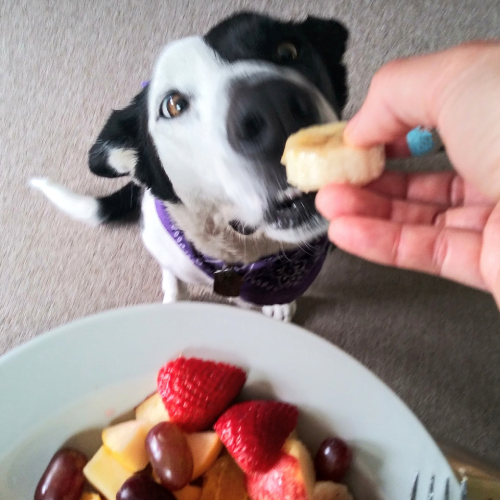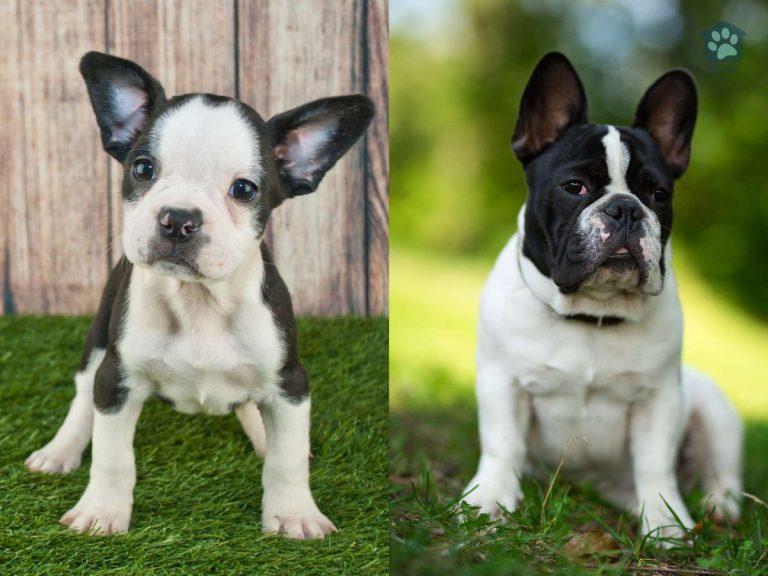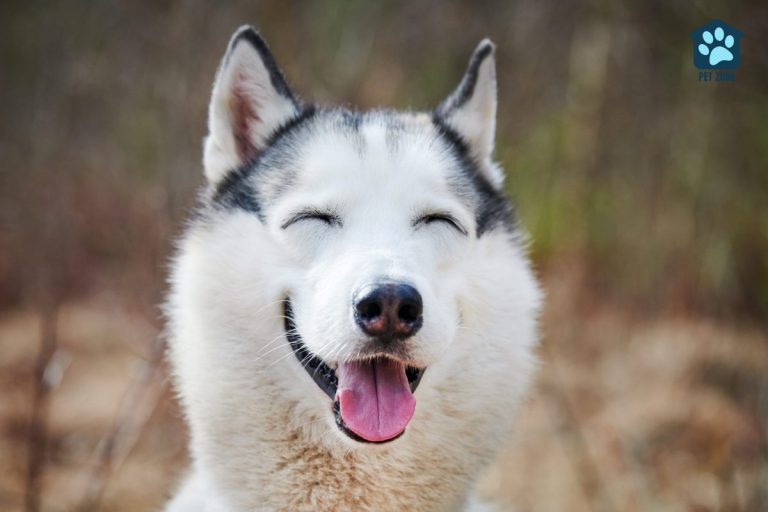Estimated reading time: 5 minutes
As dog owners, we always want the best for our four-legged friends, including providing them with a healthy and balanced diet. Sometimes, we wonder if it’s okay to give them a taste of human food or if certain items can be harmful to them. To help you navigate this, we’ve compiled a list of common human foods and can dogs eat them safely. In this guide, we’ll discuss each food item and provide you with essential information to keep your dog safe and healthy. If you’re more of a cat person, we’ve covered this topic for our feline friends as well.
The entries below are color coded for your convenience. Red means you should never feed this to your dog. Yellow means that it is generally safe, with some important conditions. Green means this is good for your dog, but usually in moderation.
Fruits
Avocado
Avocado contains a substance called persin, which can be toxic to dogs. It’s best to avoid feeding avocado to your pet.
Apples
Apples are a healthy and nutritious treat for dogs when given in moderation. Remove the seeds and core, as apple seeds contain a small amount of cyanide, which can be harmful to dogs.
Bananas
Dogs can eat bananas in moderation. They are a good source of vitamins and minerals, such as potassium, vitamin C, and vitamin B6. However, they are also high in sugar, so make sure to limit your dog’s banana intake.
Blueberries
Blueberries are an excellent treat for dogs as they are packed with antioxidants, vitamins, and minerals. They can be fed to your dog in moderation.
Grapes
Grapes and raisins are highly toxic to dogs and can cause kidney failure. Keep them away from your dog at all costs.
Oranges
Oranges can be fed to dogs in moderation, but remove the seeds and peel first. Keep in mind that oranges are high in sugar and can cause gastrointestinal issues if fed in large quantities.
Peaches
Peaches are safe for dogs when offered in moderation, but make sure to remove the pit first, as it can pose a choking hazard and contains a small amount of cyanide.
Pineapple
Pineapple is safe for dogs to eat in small quantities. It contains vitamins and minerals but is also high in sugar, so don’t overfeed it to your dog.
Strawberries
Strawberries are safe for dogs to eat in moderation. They are high in antioxidants, vitamins, and minerals, but they also contain sugar, so don’t overfeed them to your dog.
Watermelon
Watermelon is a hydrating and healthy treat for dogs when offered in moderation. Be sure to remove the seeds and rind before giving it to your pet.
Vegetables
Broccoli
Broccoli is safe for dogs to eat in small amounts. However, too much broccoli can cause gas and gastrointestinal discomfort.
Carrots
Carrots are a healthy and low-calorie treat for dogs. They provide vitamins, minerals, and fiber, and can be fed either raw or cooked.
Celery
Celery is a low-calorie, healthy treat for dogs. It provides vitamins, minerals, and fiber, and can be given to your dog either raw or cooked.
Corn
Corn is safe for dogs to eat in moderation, but only the kernels should be given, as corn cobs can pose a choking hazard or cause intestinal blockage. Avoid feeding your dog seasoned or buttered corn.
Cucumbers
Cucumbers are a low-calorie and hydrating treat for dogs. They can be given in moderation without any issues.
Mushrooms
Some mushrooms are highly toxic to dogs, while others are safe. However, it can be challenging to identify which mushrooms are safe, so it’s best to avoid feeding your dog any mushrooms to prevent accidental poisoning.
Potatoes
Cooked potatoes without any added seasonings or toppings are safe for dogs to eat in moderation. However, raw potatoes contain solanine, which is toxic to dogs, so be sure to cook them first.
Tomatoes
Ripe tomatoes in small amounts are generally safe for dogs to eat. However, unripe tomatoes and tomato plants contain solanine, which can be toxic to dogs.
Other Foods
Almonds
Almonds are not recommended for dogs, as they can cause gastrointestinal issues and even pancreatitis in large quantities. Also, almonds can pose a choking hazard or cause intestinal blockage.
Cat Food
Cat food may contain ingredients that can be harmful to dogs in large amounts, such as certain types of fish or certain plant-based ingredients. If your dog eats a small amount of cat food, it is not likely to cause harm, but it is important to monitor their behavior and watch for any signs of digestive upset.
Cheese
Cheese can be given to dogs in moderation as an occasional treat. However, keep in mind that some dogs may be lactose intolerant and might experience gastrointestinal issues after consuming cheese. Opt for low-fat, low-sodium varieties, and avoid feeding your dog blue cheese or other moldy cheeses.
Chocolate
Chocolate contains a chemical called theobromine, which is toxic to dogs and can cause symptoms such as vomiting, diarrhea, restlessness, rapid breathing, and in severe cases, seizures, and even death. The toxicity of chocolate depends on the type of chocolate and the amount ingested, with darker chocolates being more dangerous than milk chocolates. If your dog has eaten chocolate, it is important to contact your veterinarian immediately.
Eggs
Eggs are safe for dogs to eat and are an excellent source of protein, vitamins, and minerals. Make sure to cook the eggs thoroughly to eliminate the risk of salmonella and other bacterial infections.
Popcorn
Plain, air-popped popcorn is safe for dogs to eat in small quantities. Avoid giving your dog popcorn with added salt, butter, or other flavorings.
Shrimp
Cooked and peeled shrimp are safe for dogs to eat in moderation. However, raw shrimp can carry harmful bacteria, and the shells can pose a choking hazard.
Conclusion
Feeding your dog human foods can be a fun way to bond and provide variety in their diet. However, it’s crucial to know which foods are safe and which can be harmful. Always consult with your veterinarian if you have concerns or questions about your dog’s diet, and remember that moderation is key when offering your dog human foods as treats.








